< Back
10 Top Must-Know Elicit Alternatives in 2024
Declan Gessel
Sep 24, 2024
Researching for an essay can be an arduous task. You must find credible sources that support your thesis and have up-to-date information. With so many resources available, it can be overwhelming to know where to start. Fortunately, excellent AI tools, like Elicit AI, can help you find sources for your essay. This guide will discuss the top 10 Elicit AI alternatives to help you find sources for your following research paper.
One of the best tools to find sources for essay is Jotbot's source finder. It helps you quickly locate credible research for your following essay or academic paper.
Table Of Contents
What is Elicit AI?
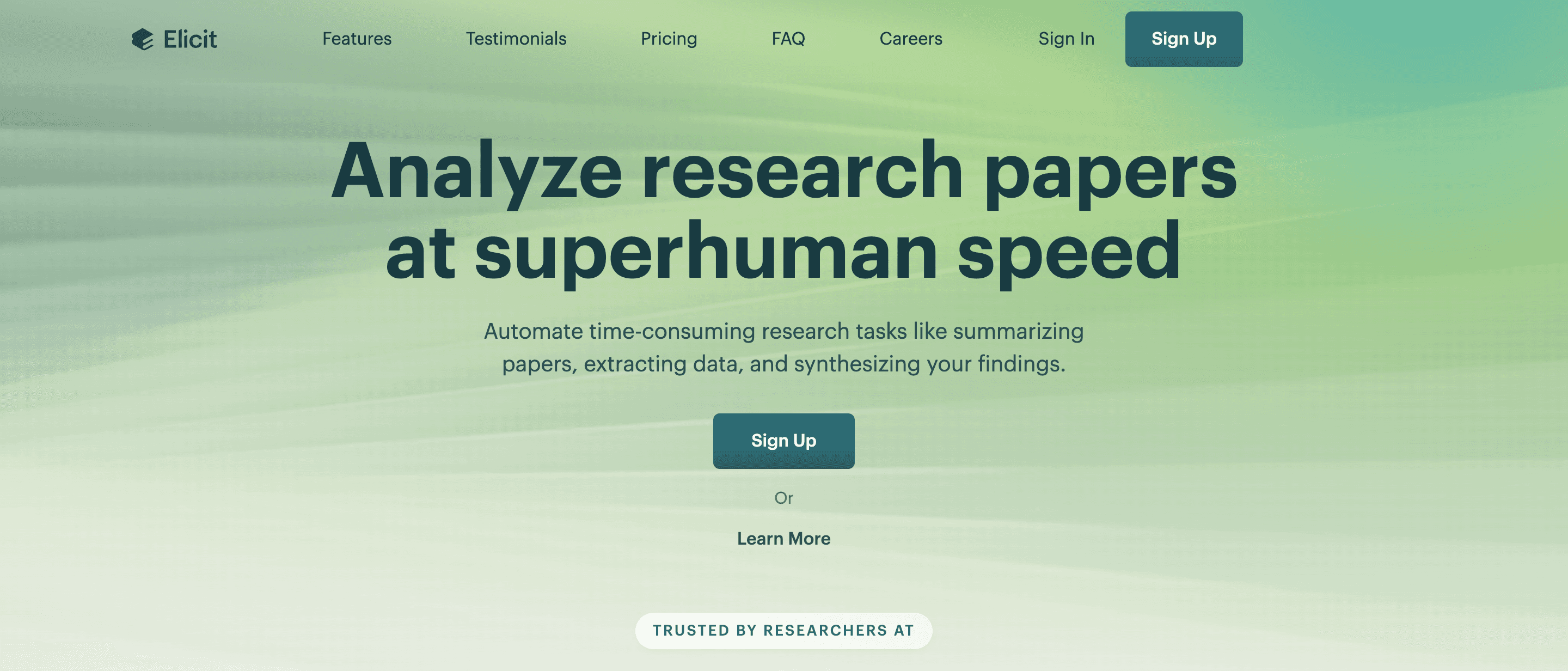
Elicit is an advanced AI-powered research assistant specifically designed to help users streamline the process of conducting literature reviews, gathering relevant academic papers, and analyzing complex data. Developed by Ought, a non-profit organization focused on using AI to accelerate research and decision-making, Elicit leverages cutting-edge machine learning technology to aid researchers, academics, and professionals in finding the most pertinent information across vast scholarly articles and research material databases.
By automating much of the time-consuming manual work associated with academic research, such as finding, filtering, and organizing papers, Elicit significantly reduces the effort needed to carry out comprehensive literature reviews. Traditionally, researchers might spend hours or even days searching databases, skimming abstracts, and extracting critical information.
With Elicit, the process is simplified, allowing users to ask specific research questions and receive tailored suggestions for relevant studies almost instantaneously. Elicit’s AI-driven system processes these papers to provide concise summaries, highlight key data points, and, where necessary, compare findings across multiple sources, ensuring that users can quickly grasp the essential insights from a large body of work.
How Elicit Works
At its core, Elicit functions as an intelligent assistant that brings automation and AI to the research process. Users interact with the platform by posing research questions or topics of interest, and the AI scours its connected databases to retrieve relevant academic papers.
Unlike traditional search engines that rely on keyword matches, Elicit uses natural language processing (NLP) to understand the nuances of the research query and identify the most pertinent articles. Once the AI pulls in the results, Elicit goes beyond simple keyword search results by extracting key findings and data points and comparing results from multiple papers.
This ability allows users to quickly see patterns in the research, find answers to specific questions, and determine which studies are most relevant to their needs without having to read through each manually. This makes Elicit particularly useful for researchers working on complex, data-heavy projects or those who need to sift through hundreds of papers efficiently.
Related Reading
• How To Find Good Sources
• Using AI For Research
• Citing ChatGPT
• How To Find Academic Sources
• How To Cite AI In MLA
• AI For Research Paper Writing
• Essay Sources
• AI In Academic Writing
• Most Reliable Sources For Research
• How To Get ChatGPT To Cite Sources
Key Characteristics of Elicit

Automated Literature Review - Elicit AI Takes the Drudgery Out of Academic Research
One of Elicit AI's most impressive features is its ability to automate the literature review process. Rather than manually searching research databases and reading countless abstracts, Elicit AI automates this tedious process.
Researchers input a query, and Elicit AI's sophisticated algorithm returns a curated list of studies related to the user's research question. This automated literature review process speeds up the initial stages of research by eliminating the need for manual searching. This time savings can be beneficial when dealing with niche topics or extensive bodies of work.
Ask Elicit AI Anything - An Interactive Question-Answering System
Elicit AI's question-answering system is another critical feature that differentiates it from other research tools. Users can ask specific questions related to their research, and the platform will find papers that match the topic and extract relevant answers from those studies.
For instance, if a researcher asks, “What are the effects of mindfulness on workplace productivity?” Elicit AI will locate papers on mindfulness practices and workplace performance and provide the key findings from those studies. This turns Elicit AI into an interactive research assistant capable of generating meaningful insights directly from research questions.
Data Extraction - Elicit AI Helps You Collect the Data You Need
Beyond locating research, Elicit AI helps users extract specific data points from the studies it finds. Whether it's statistical results, methodologies, or conclusions, Elicit AI can pull out this information, making it much easier to work with data-intensive projects. This functionality is precious for meta-analyses or systematic reviews, where comparing data across multiple papers is crucial.
Summarization - Quickly Understand What Academic Papers Are About
Reading entire academic papers can be time-consuming, especially when dealing with technical jargon and complex data presentations. Elicit AI addresses this challenge by offering concise summaries of the documents it retrieves.
These summaries provide a snapshot of the key findings and insights, enabling users to quickly assess whether a paper is relevant to their research without going through the entire text. Elicit AI's AI can summarize the core contributions of each paper, highlighting the methodology, results, and conclusions, significantly reducing the amount of reading required.
Comparative Analysis - Spot Trends and Patterns Across Multiple Studies
Another powerful feature of Elicit AI is its ability to perform comparative analysis across multiple studies. It allows users to compare findings from different papers side by side, making it easier to see trends, commonalities, or discrepancies in the research.
This feature is handy for synthesizing information from various sources and drawing more robust conclusions. Researchers conducting literature reviews, meta-analyses, or systematic reviews can leverage this feature to spot patterns or contradictions without manually comparing papers.
Elicit AI's Overall Impact - Streamline Your Academic Research Workflow
Elicit AI bridges a critical gap in research by transforming how users interact with academic literature. It offers a unique combination of automation and intelligence, making academic exploration far more efficient. Whether a researcher is gathering studies for a literature review, seeking to answer specific research questions, or conducting comparative analyses, Elicit AI simplifies the process. At the same time, ensuring users access accurate and up-to-date information.
By reducing the time spent on administrative tasks like finding and summarizing papers, Elicit AI enables researchers to focus more on analyzing data and generating meaningful insights. Its capabilities make it a must-have tool for academics, professionals, and students who regularly work with large volumes of research material, helping them make informed decisions quickly without compromising on the depth or quality of their findings.
Write more brilliantly, not harder, with Jotbot's AI writing assistant. Start finding sources for free with Jotbot's source finder today. Sign in with Google and get started in seconds.
10 Top Must Know to Elicit Alternatives
1. Jotbot: Your Smart Writing Assistant
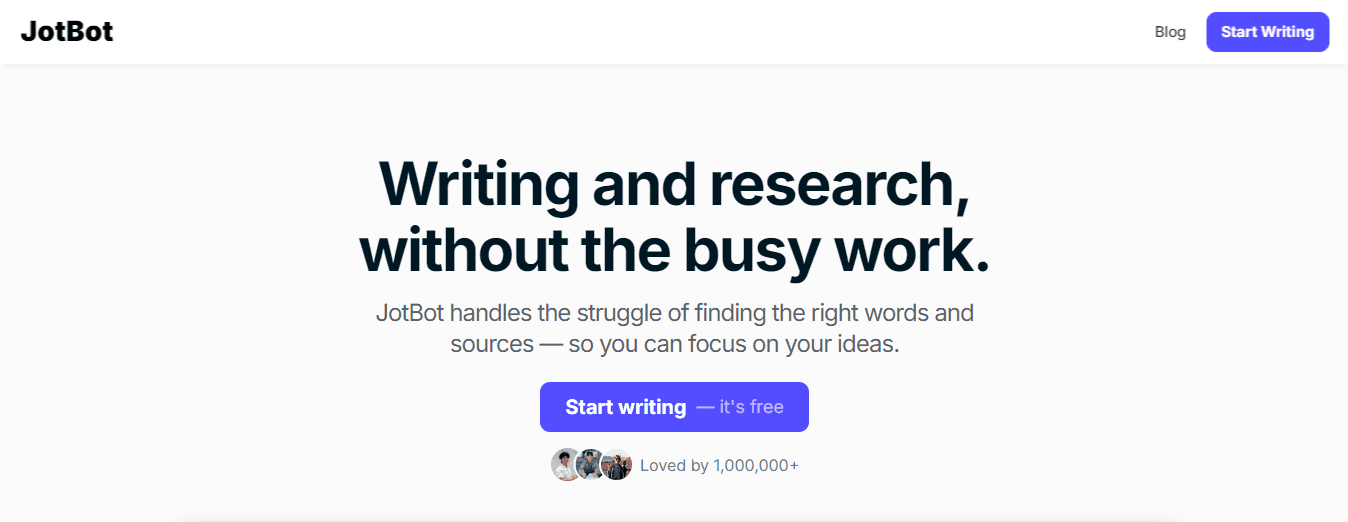
Jotbot is your personal document assistant and source finder. Jotbot does AI note-taking, AI video summarizing, and AI citation/source finder; it writes AI outlines for essays and even writes entire essays with Jotbot’s AI essay writer. Join 500,000+ writers, students, teams, and researchers worldwide to write more, write better, and write faster with Jotbot's AI writing assistant.
Write more brilliantly, not harder, with Jotbot's AI writing assistant. Start finding sources for free with Jotbot's source finder today. Sign in with Google and get started in seconds.
2. Research Rabbit: The Social Side of Source Searching
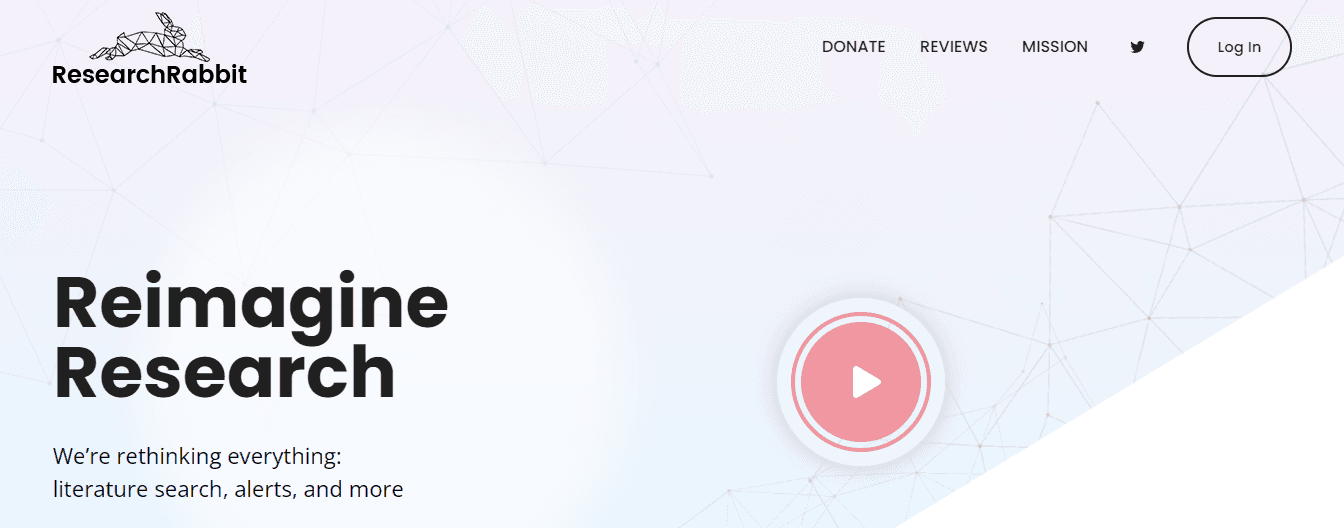
Known as a "Spotify for research papers," Research Rabbit helps users create collections of research articles and receive personalized recommendations based on their chosen papers. Users can track new documents in their field and build curated research libraries.
The platform also allows collaboration, enabling users to share their paper collections with colleagues. While Elicit focuses on data extraction and summarization, Research Rabbit offers a more social and interactive experience for discovering and organizing papers, which benefits team-based research projects.
3. Litmaps: Visualize Research Trends
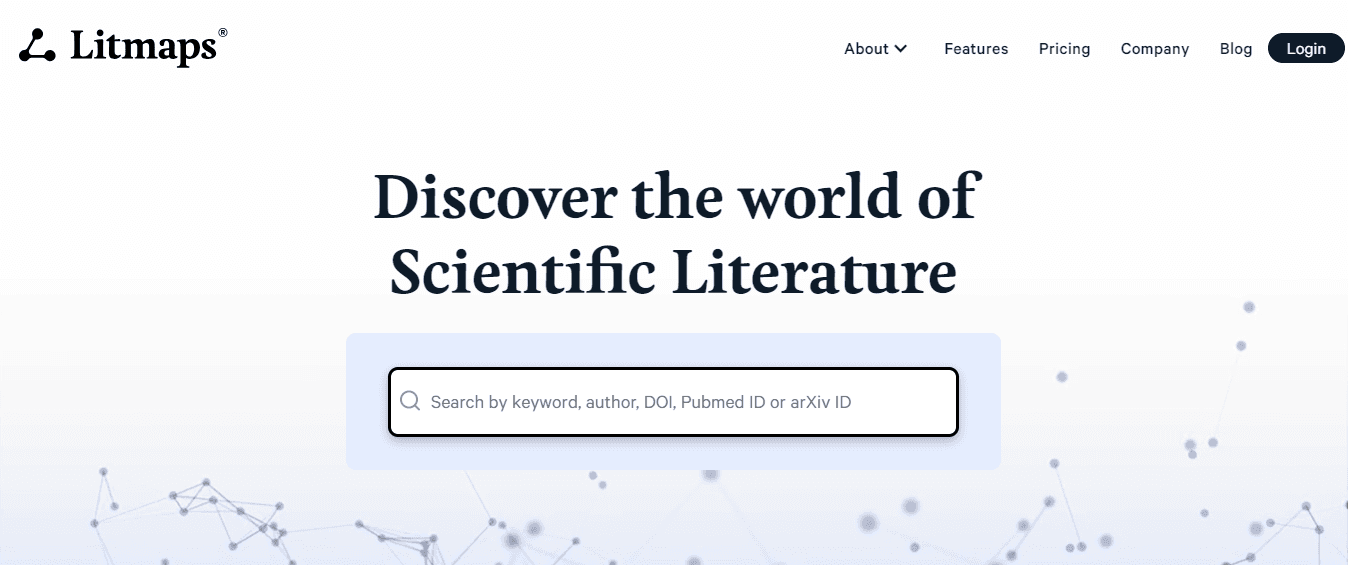
Litmaps provides a dynamic way to keep up with new academic papers and map out research trends. Creating real-time citation maps allows users to visualize how research fields evolve and identify influential documents. Litmaps’ ability to track citations as they happen offers an advantage for researchers looking to stay current in rapidly changing fields. Although it doesn’t provide data extraction or summaries like Elicit, its citation-tracking functionality is invaluable for following the development of academic discourse in real time.
4. Zotero: The Pioneer of Reference Management
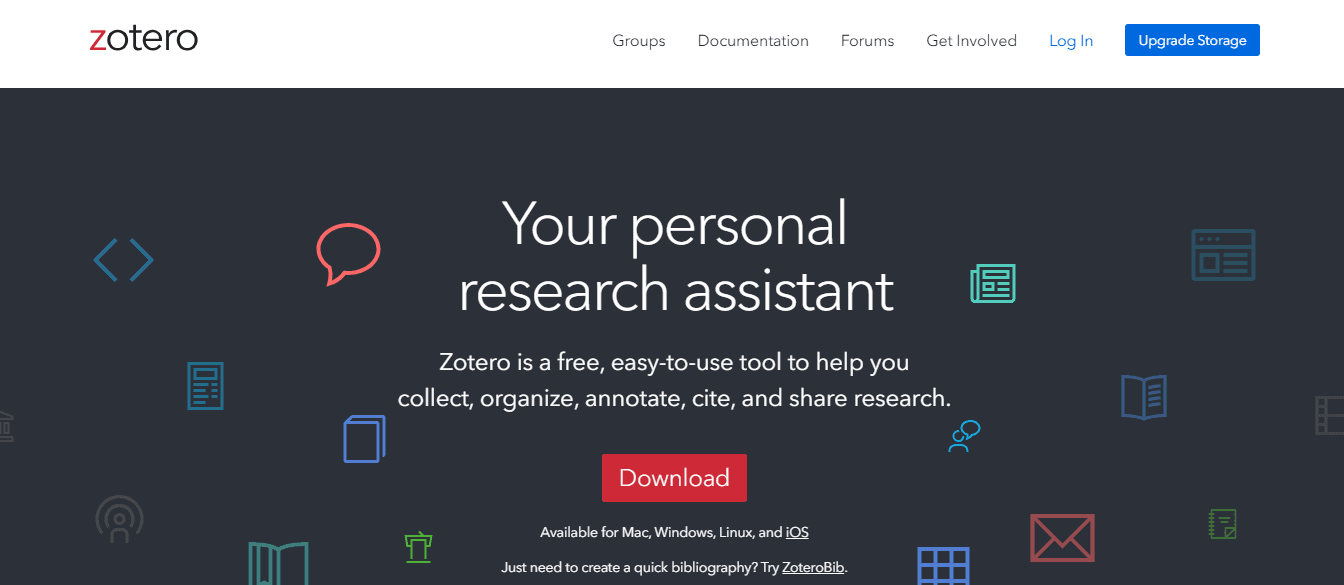
Zotero is one of the most popular reference management tools, providing users with a robust platform to collect, organize, and cite academic papers. Unlike Elicit, which is heavily focused on AI-powered literature review and summarization, Zotero specializes in helping researchers manage their paper libraries and generate citations quickly. It integrates well with word processors for in-text citations and bibliography generation, making it an excellent tool for long-term project management and organization of research materials.
5. Mendeley: Reference Management with a Social Twist
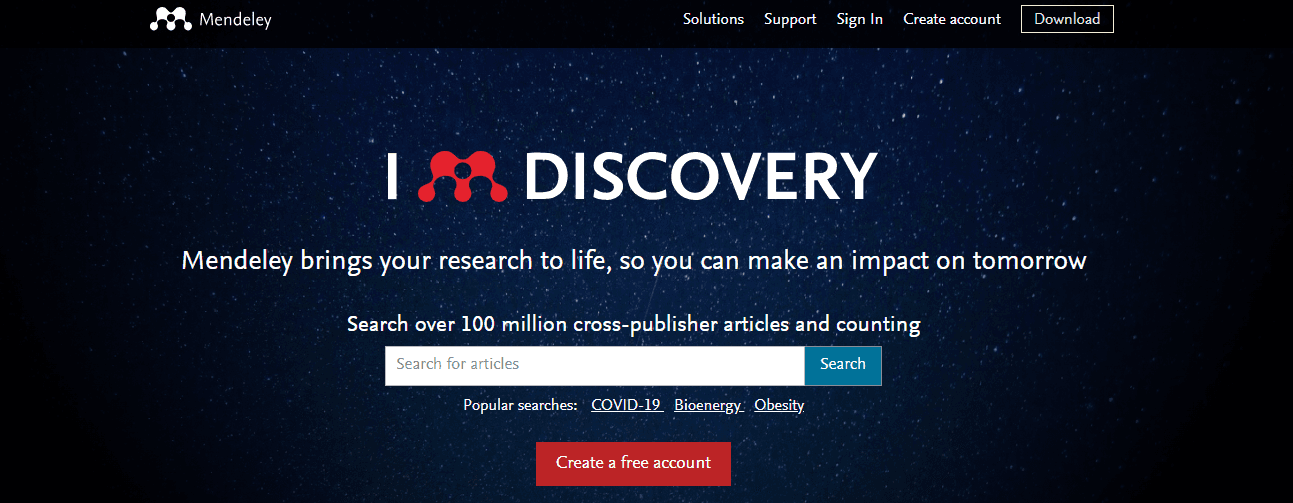
Similar to Zotero, Mendeley is a reference management tool with an added social network for researchers. Mendeley users can organize their papers, annotate them, and share them with collaborators. One of Mendeley’s standout features is its ability to suggest related documents based on what users have in their libraries, making it an excellent tool for discovering new research. Elicit and Mendeley both aid in literature review processes but with different focuses: Elicit for automation and summarization and Mendeley for organizing and managing large libraries of papers.
6. Semantic Scholar: An AI-Powered Academic Search Engine
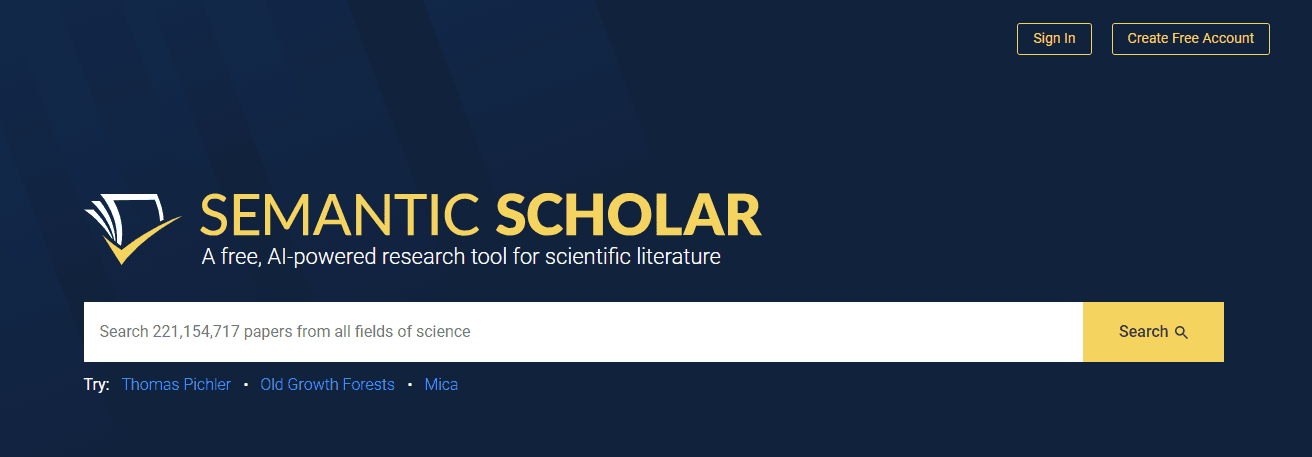
Semantic Scholar is an AI-powered academic search engine developed by the Allen Institute for AI. It uses machine learning to help researchers find relevant papers faster and offers paper summaries, citation insights, and influential citations. Unlike Elicit, which emphasizes automation of literature reviews and comparative analysis, Semantic Scholar is more of a search engine. It provides deep insights into citation networks, authorship, and key terms in papers, which can help explore academic influence and trends.
7. Scite: Smarter Citation Analysis
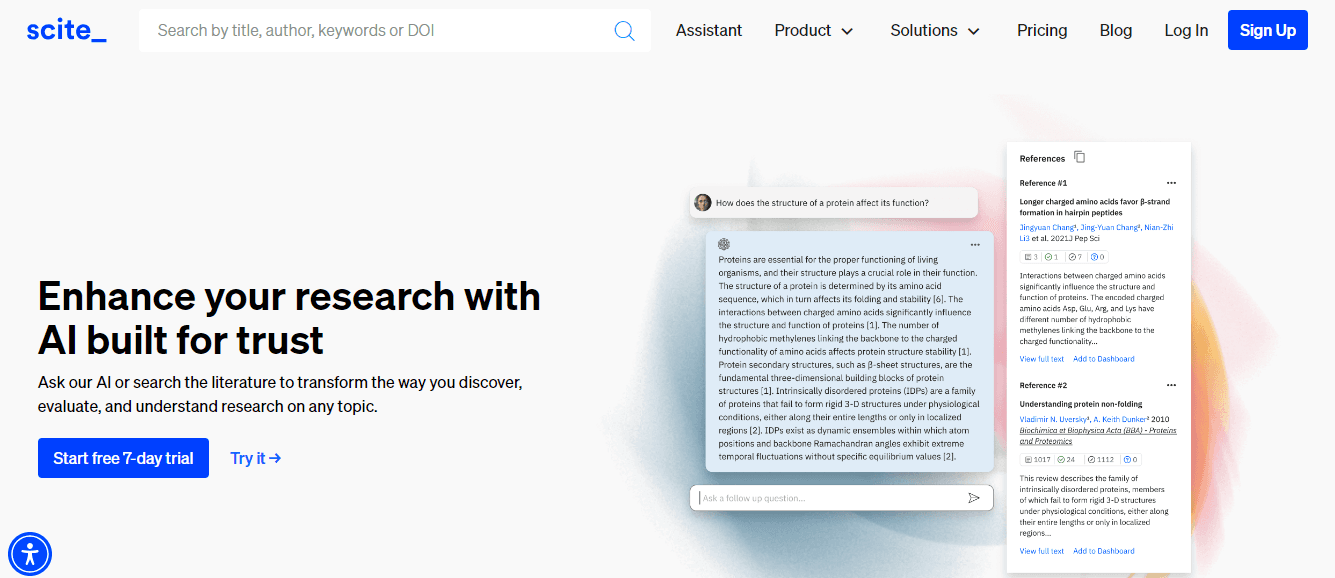
Scite uses brilliant citation analysis to show how papers have been cited, whether the citation supports, contradicts, or merely mentions the research. This “smart citation” system allows users to see how papers are being discussed in the academic community, providing an extra layer of insight that traditional citation tracking tools lack.
Scite is particularly useful for researchers who need to evaluate a study's impact or understand how a particular paper fits into the larger academic conversation. It differs from Elicit in that it focuses more on the qualitative aspects of citations rather than summarizing or comparing content across multiple studies.
8. Rayyan: Collaborate on Systematic Reviews
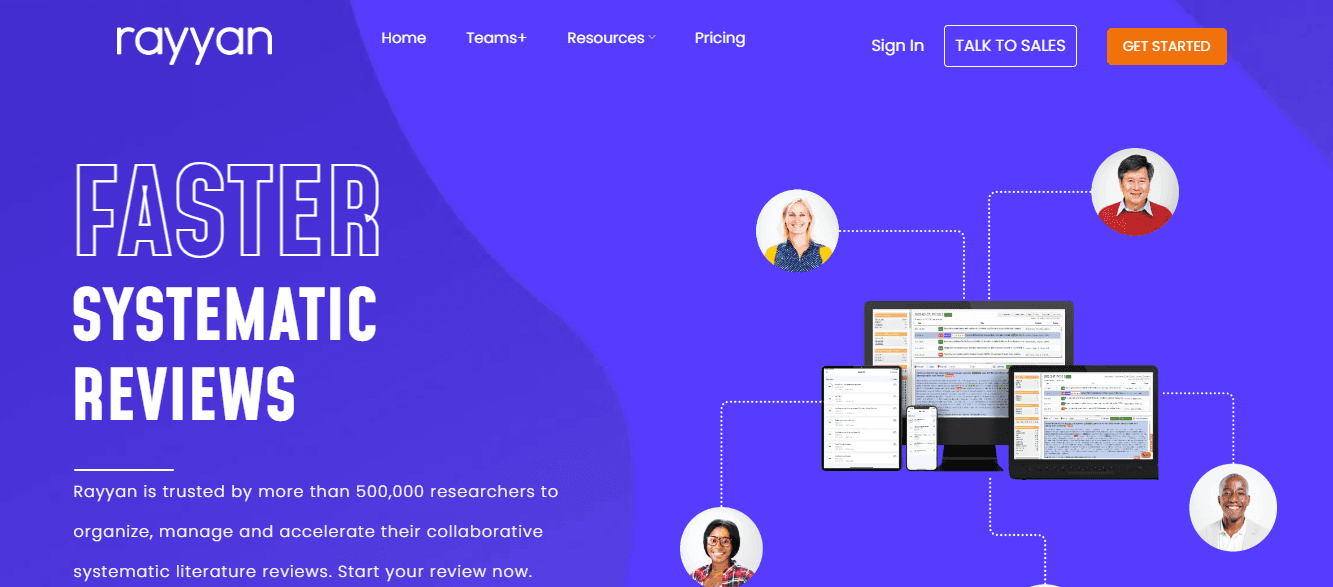
Rayyan is a web-based tool designed to expedite the systematic review process. It allows users to collaborate on reviews and provides AI-driven assistance for screening articles. Rayyan uses machine learning to suggest relevant studies based on users' inclusion and exclusion criteria. While Elicit automates literature reviews by summarizing and extracting data from papers, Rayyan excels in helping teams work together to sift through research for systematic reviews, offering collaboration tools and customizable criteria for more detailed project management.
9. Sparrho: Curated Research Discovery
Sparrho is a research discovery platform that combines machine learning and human expertise to curate academic content. It allows users to track specific topics and receive updates whenever new relevant papers are published. With its focus on personalized discovery, Sparrho is ideal for researchers looking to stay updated on the latest developments in their field. While it doesn’t offer data extraction or summarization like Elicit, its curated approach to delivering personalized research updates makes it valuable for keeping pace with evolving topics.
10. Paperpile: A Google Docs Reference Manager
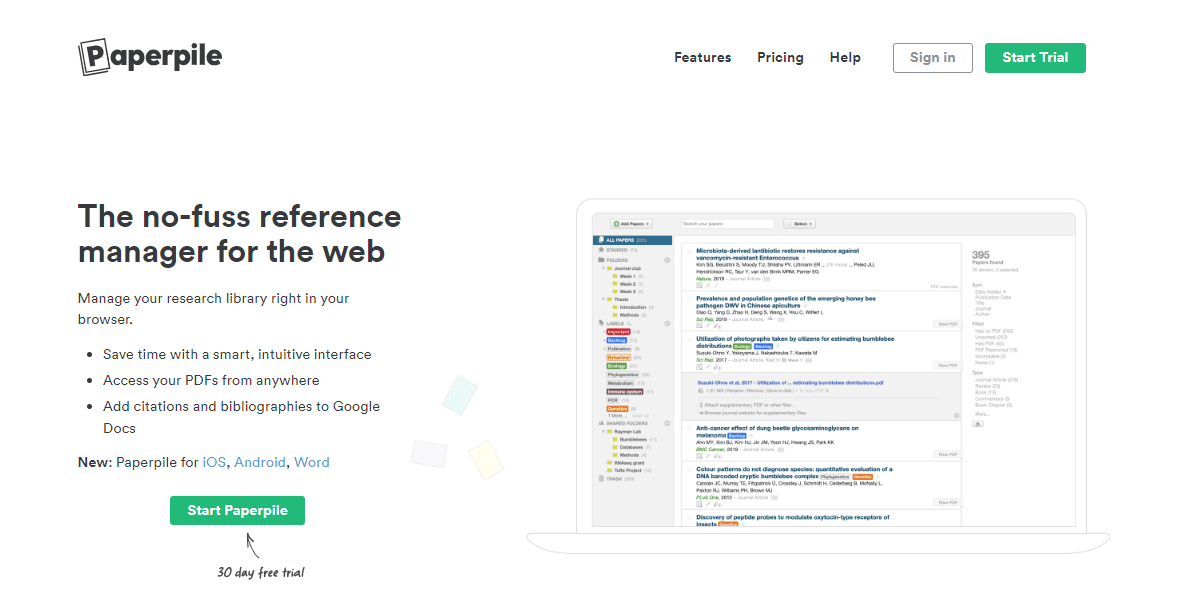
Paperpile is a reference manager for academic researchers, built with a focus on Google Docs integration. It lets users quickly organize their references, annotate PDFs, and create citations directly within documents. Although Paperpile is more of a reference management tool, its seamless integration with Google Docs makes it an excellent choice for researchers who need a streamlined process for writing academic papers. Elicit offers more automation for literature reviews, while Paperpile focuses on organization and workflow within document editing environments.
Related Reading
• Best AI Tool For Research
• Reference Finder
• Best AI For Research
• How to Cite AI
• AI For Literature Review
• Websites Like Google Scholar
• AI That Cites Sources
• Best Academic Search Engines
• Academic Research Software
• How To Use Chat GPT For Research
• Best Research Tools For Students
How to Choose the Right Elicit Alternative

Research Focus and Workflow: Find the Right Fit for Your Study
Different platforms cater to varying research disciplines, types of research questions, and user workflows. For example, if your work involves frequent systematic reviews, tools like Rayyan—which specializes in systematic review processes—could be more suitable than Elicit’s generalized approach to literature reviews. Scite, however, is valuable if you're more interested in understanding how research papers are cited within the academic community.
Citation and Reference Management: Don’t Let Your References Slow You Down
If managing citations and references is a crucial part of your workflow, alternatives like Zotero, Mendeley, or Paperpile should be considered. These platforms are robust in organizing references, generating citations, and integrating with word processors. For researchers working on long-term projects that require the management of vast reference libraries, having a tool that offers easy citation creation and reference organization is essential.
Collaboration Features: Finding a Tool for Teamwork
Collaborative functionality is critical for researchers working in teams or across institutions. Tools like Mendeley and Rayyan shine by allowing multiple users to contribute, annotate, and share research papers or systematic review projects. If you frequently collaborate on research, choosing a tool that prioritizes multi-user access and team-oriented features is vital.
Customization and Flexibility: Finding a Tool That Adjusts to Your Needs
Research workflows vary significantly across different academic disciplines. A highly customizable platform can adapt to these varied workflows. Tools like Zotero allow you to customize tagging systems, organize papers into collections, and even set up integrations with third-party applications. If you prefer more control over how your research is organized and displayed, look for alternatives that offer customization options, whether in data organization, search parameters, or citation styles.
Ease of Use and Learning Curve: Don’t Get Stuck in Research Tool Limbo
Some alternatives to Elicit may offer advanced features but come with steeper learning curves. For instance, Connected Papers and Litmaps provide rich visualizations of research networks, which can be incredibly helpful but may take some time to master. On the other hand, tools like Research Rabbit offer intuitive interfaces that are easy to navigate from the start, making them ideal for those who want simplicity without sacrificing functionality.
Cost and Pricing Models: Don’t Break the Bank on Research Tools
Many research tools have freemium or subscription-based pricing models, which can impact your decision depending on your budget. For instance, Mendeley offers a free version with a limited storage quota, while Paperpile and Scite have subscription-based models for premium features. Researchers with limited funding may prioritize tools with robust free features or low-cost premium options.
Integration with Other Tools: Find a Research Assistant That Plays Well with Others
Many research tools work better when integrated with other software, such as writing apps, citation generators, or project management tools. If your workflow relies on seamless transitions between tools, checking how well the alternative integrates with third-party platforms is essential. For example, Zotero integrates well with tools like Google Scholar and PubMed, while Paperpile integrates well with Google Docs for citation generation.
Real-Time Updates and Paper Tracking: Keep Up with the Research World
If you work in a field where keeping up with the latest research is critical, a tool like Litmaps or Research Rabbit might be essential for tracking newly published papers. These tools provide notifications or real-time updates when papers relevant to your topics of interest are released, ensuring you’re always on top of the latest developments in your research area.
Summarization and Data Extraction Capabilities: Get the Information You Need
If you want to use tools that offer features similar to Elicit’s data extraction and summarization, ensure the alternative tool has comparable capabilities. For instance, Semantic Scholar offers summaries and citation insights, which can help with rapidly skimming academic papers. However, not all alternatives provide AI-driven data extraction, so this could be a dealbreaker for some users who prioritize automation.
Why Jotbot Is Our Preferred Option

Jotbot: The Ultimate AI-Powered Tool for Writing Tasks
Jotbot is a versatile AI-powered tool that simplifies writing tasks for writers, students, researchers, and teams. With its multifaceted capabilities, Jotbot goes beyond traditional AI writing assistants by offering features such as AI note-taking, video summarization, source finding, and even whole essay generation.
Whether you’re a student working on an academic paper, a professional drafting reports, or a researcher pulling together influential citations, Jotbot provides comprehensive assistance to streamline your workflow.
AI Note Taking: Get Organized
Jotbot can transform complex information into organized, easy-to-digest notes. This feature is perfect for students or professionals who need to quickly summarize large volumes of content to get organized before they start writing their papers.
AI Video Summarization: Save Time
For those who learn from or reference video content, Jotbot’s ability to summarize videos saves valuable time by extracting critical points from educational videos, webinars, or lectures.
AI Source Finder: Find Credible Sources Quickly
Jotbot finds and recommends credible sources and citations, helping researchers and students speed up gathering relevant references.
AI Outlines for Essays: Get Structure and Direction
Jotbot helps users generate detailed outlines for their essays or papers, offering structure and direction.
AI Essay Writer: Create Content Faster
For users needing full writing assistance, Jotbot can draft entire essays, significantly reducing the time and effort spent on content creation.
Write Smarter With Jotbot's Source Finder — Start Writing for Free Today
Jotbot is an AI assistant that helps writers with research. The tool can help you find sources for your paper and even write the paper for you! Keep reading for more information on how Jotbot can help you find sources and write better essays.
How Jotbot Finds Sources for You
Jotbot's source finder helps you find reliable sources for your paper. First, you enter your prompt or topic. Then, Jotbot scans the Internet and returns relevant academic sources to help you write your paper. This process takes mere seconds, saving you hours of tedious research time.
Related Reading
• Scholarcy AI
• Scisummary
• AI Research Tools
• Sourcely
• Consensus AI Tool
• Mendeley Alternatives
• Cite This For Me Alternative
• Scholarly Sources Examples
• Academic Sources Examples
• How to Find Scholarly Sources
• List of Scholarly Sources
• Examples of Peer Reviewed Sources
• How to Cite a Book
• How to Cite an Article
• How to Cite
• How to Cite a PDF
• How to Cite Multiple Authors MLA
•How to Cite a Website in Text
• How to Cite a Lecture
• How to Cite ChatGPT
Write more, better, faster.
Your personal AI document assistant












